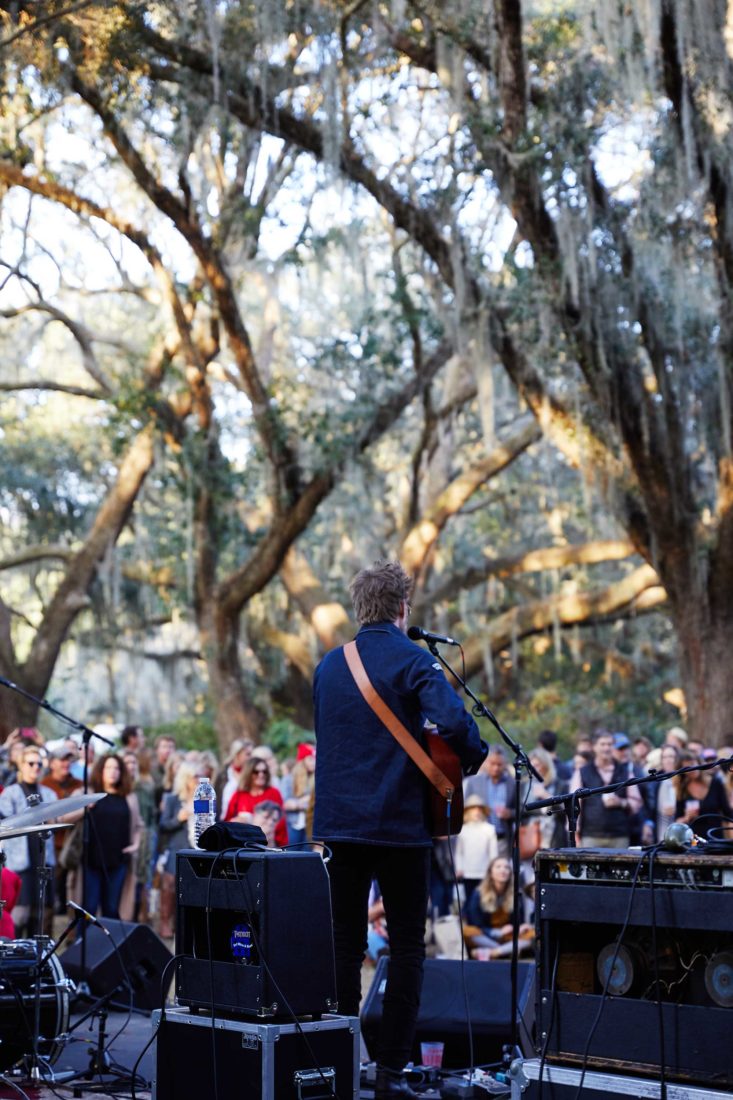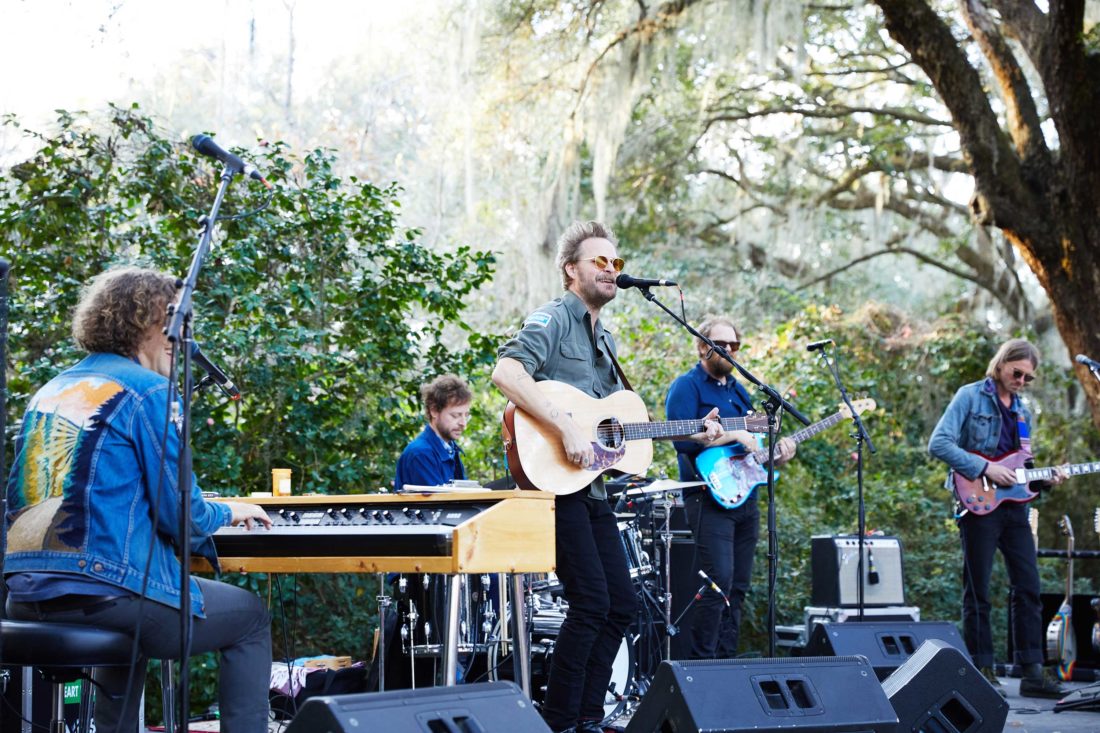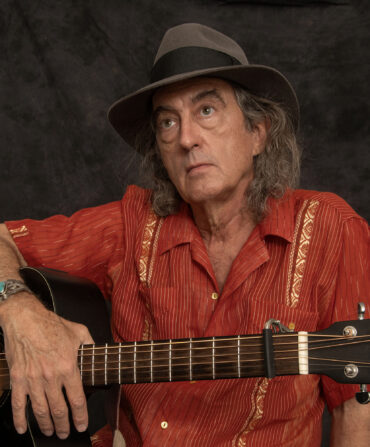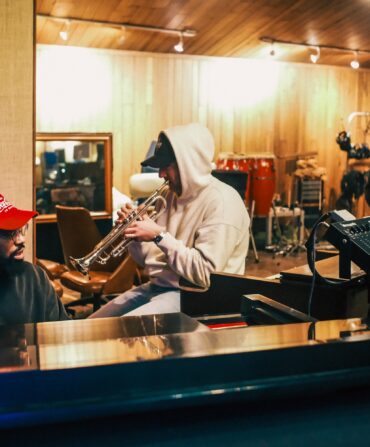“I’ve never played at a such a beautiful place,” says M.C. Taylor, sitting under the live oaks at Charles Towne Landing, just across the Ashley River from Charleston, South Carolina. But he wouldn’t get to enjoy the view for long: Taylor was only in town for the day when we sat down with him at G&G’s Jubilee in December. He and his band, Hiss Golden Messenger, were headed to New York as soon as they finished the finale concert for an appearance on Late Night with Seth Meyers the next day. That pace is fast becoming the norm. Taylor may have begun by writing poetic songs he thought no one would hear, but more and more people are listening. Having released three albums in a twelve-month span—Heart Like a Levee with bonus album Vestapol in 2016, and the soulful Hallelujah Anyhow in September—the folk-rock frontman has plenty to talk about, even if he doesn’t have much time to talk about it. Hiss Golden Messenger is on tour throughout Texas during January, then picks back up in March with dates in Florida, Georgia, and Tennessee. (Check here for dates.) If you can’t catch Taylor live, catch him here, where he talks about his music and how the South has shaped it.
You grew up in California. What drew you to the South?
For as long as I was able to put my arms around what I think of as the most important things and ideas in my life, Southern culture always called to me. So much of the music that I love and is foundational for me is either from the South or has its roots in the South, even if it’s ostensibly from somewhere else. There’s so much Southern literature that I love, the food, and there’s just a way of being that is ineffable. It’s something that you feel.
So much so that you and your wife moved to Durham, North Carolina, ten years ago. Why there?
We jumped in with both feet, not knowing we were going to end up. We had no long-term plan, but Durham has become home. It’s where my closest friends are. Both of our kids were born in North Carolina. It’s a really important place to me. Maybe because I’m not from here, I feel like every time I walk the streets in any little Southern town, I’m seeing that place with a vision that feels fresh.
You spent time as a folklorist doing fieldwork for the State of North Carolina before pursuing music full-time. Are there aspects of that job that help you as a songwriter?
It really sharpened my listening. Opening myself up to people and just being able to listen in a deep way became important to me. When you engage with people like that, you start to realize that we all hope for the same things. That’s more important than ever to me right now: on the surface it seems like there is a lot of division, but when you get down to it, everybody wants and needs the same things. They want their families and their kids to be safe and fed and warm. I’ve not met anybody who doesn’t want those things. I had that realization really put into me when I was doing folklore work, because my job was to be asking people pretty personal questions. It became a lot deeper than that over time.
There is an optimism in your latest album that reveals itself in the lyrics as well as the title. How did you land on Hallelujah Anyhow?
I named it Hallelujah Anyhow to serve as a little reminder to myself really, that as many dark clouds as seem to be hovering right now, we’re just living in one tiny little moment. There’s a lot of history behind us, and a lot of time to be passed through in front of us. It’s up to us to figure out how we behave when we wake up each morning. I’m trying to look for the silver lining in every day.

M.C. Taylor looks out at the crowd during the JUBILEE finale concert.
Is it ever tough to take songs from the writing process into a live setting?
It’s so hard to anticipate how things are going to translate from the office, where I write, into the public space. Sometimes songs that you never would have thought would work in a live setting become songs that are really powerful in that setting. Sometimes songs that you think are going to be a home run, they don’t actually fly. My rule, the one I have tried to live by since anybody started caring about Hiss Golden Messenger, is to ask myself, “Can I sing this song with engagement every night, regardless of what I see from the stage and the crowd?”
I want people to like my music, but I’ve been doing it for so long, and most of that time was for nobody, that I’ve found a way to create something that is very engaging and meaningful to me, and that became the most important thing. If I didn’t have a way to deal with the joy and the grief that I carry around with me, I don’t know what I would do.








